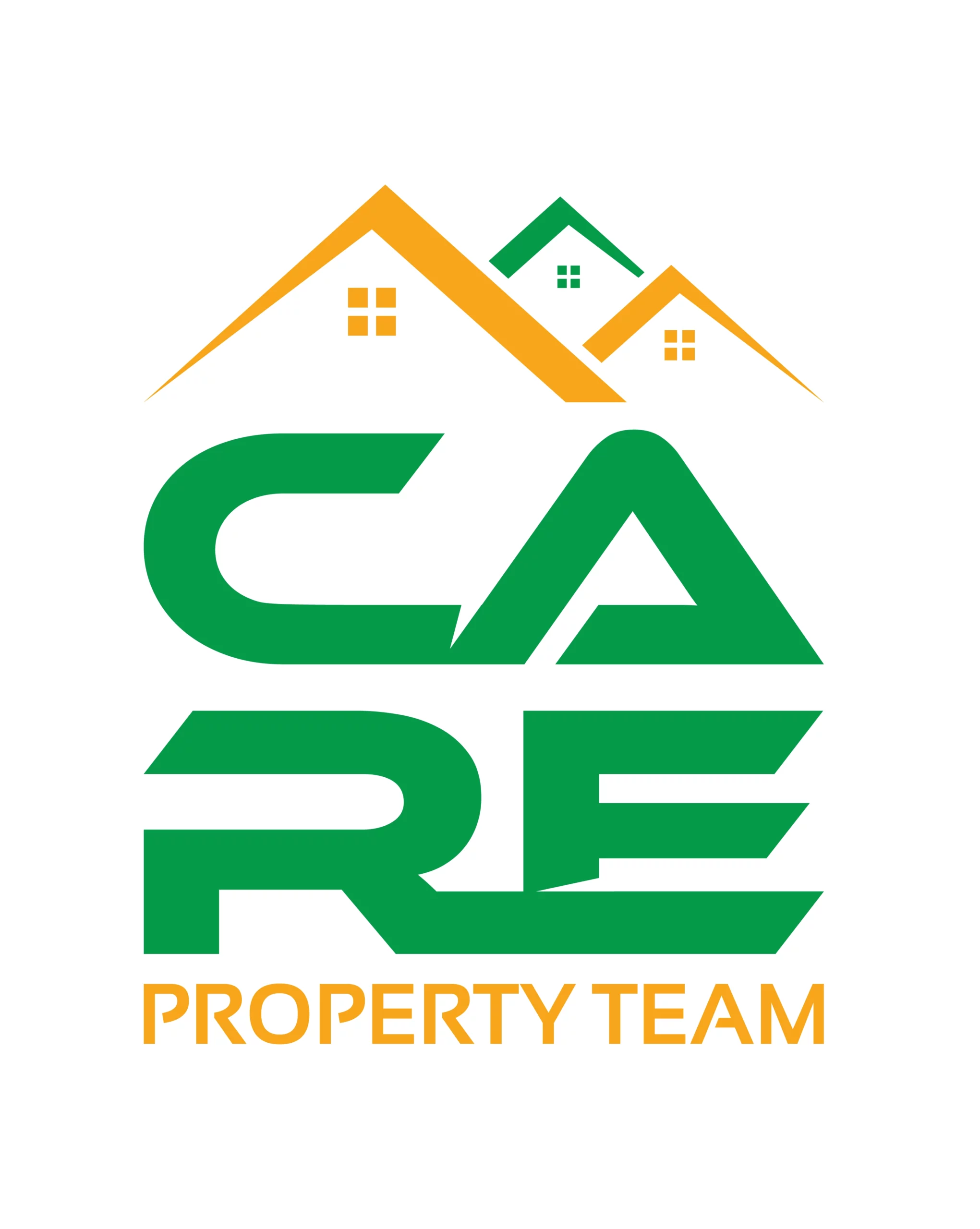Are you interested in breaking into the lucrative world of real estate wholesaling in Texas? Look no further! In this comprehensive guide, we will walk you through the step-by-step process of getting started in the exciting field of real estate wholesaling.
Real estate wholesaling involves finding great deals on properties and then connecting those deals with buyers for a profit. It’s a low-risk, high-reward strategy that can be incredibly lucrative if done correctly.
In Texas, where the real estate market is booming, there are numerous opportunities for aspiring wholesalers. But how do you get started? What are the legalities involved? And most importantly, how do you find those hidden gems that will make you money?
In this article, we will answer all of these questions and more. We will provide you with the knowledge you need to navigate the world of real estate wholesaling in Texas, from finding motivated sellers to negotiating deals and everything in between. So, buckle up and get ready to embark on your real estate wholesaling journey in the Lone Star State!
What is real estate wholesaling?
Real estate wholesaling is a strategy that involves finding great deals on properties and then connecting those deals with buyers for a profit. Unlike traditional real estate transactions, wholesaling does not require you to own the property or make any significant investments. Instead, you act as a middleman, finding motivated sellers and connecting them with buyers who are willing to pay more for the property.
The benefits of real estate wholesaling
Real estate wholesaling offers several benefits that make it an attractive option for aspiring investors. First and foremost, it is a low-risk strategy. Since you are not actually buying the property, you don’t need to worry about financing, maintenance, or repairs. This significantly reduces your financial risk and allows you to focus on finding profitable deals.
Another benefit of wholesaling is the potential for high rewards. When you successfully connect a motivated seller with a buyer, you can earn a substantial profit. The key is to find properties that are significantly undervalued and negotiate favorable deals with the sellers. With the booming real estate market in Texas, there are plenty of opportunities for wholesalers to make a substantial income.
Is Wholesaling Houses Legal In Texas?
Wholesaling real estate is the process of finding and contracting with a property owner who wants to sell quickly, and then assigning or selling the contract to an end buyer who will take possession of the property. Wholesaling real estate is legal in Texas, as long as you follow some rules and regulations.
According to the Texas Occupations Code, Section 1101.0045, you can acquire an option or an interest in a contract to purchase real property and then sell or offer to sell the option or assign or offer to assign the contract without holding a real estate license, if you do not use the option or contract to engage in real estate brokerage, and if you disclose the nature of your equitable interest to any potential buyer.
However, you cannot act as a real estate agent or broker, which means you cannot list and market properties for sale to the general public, or represent buyers or sellers in real estate transactions. To do so, you need a real estate license issued by the Texas Real Estate Commission (TREC). If you violate this rule, you may face fines up to $4,000 per incident and possible disciplinary actions from TREC.
Therefore, to wholesale real estate legally in Texas, you need to make sure that you have a valid and enforceable contract with the property owner, that you clearly state your intention to assign or sell the contract to another buyer, and that you do not advertise the property as your own or solicit buyers on behalf of the owner. You also need to comply with other laws and regulations that apply to real estate transactions, such as the Property Code, the Deceptive Trade Practices Act, and the Texas Administrative Code.
Wholesaling real estate can be a profitable and low-risk way to get started in real estate investing, but you need to be careful and ethical in your dealings. If you want to learn more about wholesaling real estate in Texas, you can check out some online resources, such as this guide or this blog.
Finding motivated sellers in the Texas real estate market
One of the most critical aspects of real estate wholesaling is finding motivated sellers who are willing to sell their properties at a discounted price. In Texas, where the real estate market is booming, there are numerous opportunities to find these hidden gems.
One effective strategy is to target distressed properties. These are properties that are in poor condition or facing financial difficulties. Distressed sellers are often more motivated to sell quickly, making them ideal candidates for wholesaling. You can find distressed properties by driving around neighborhoods, searching online platforms, or networking with local real estate professionals.
Another approach is to target absentee owners. These are property owners who do not live in the property or nearby. Absentee owners may be more willing to sell their properties at a lower price, especially if they are not actively managing or maintaining them. You can access absentee owner information through public records or by using specialized real estate databases.
Evaluating and analyzing potential wholesale deals
Once you have identified potential properties, the next step is to evaluate and analyze them to determine if they are suitable for wholesaling. This involves conducting thorough due diligence to ensure that the property meets your criteria and has the potential to generate a profit.
Start by assessing the property’s condition and estimating the repair costs. Since you will be assigning the contract to a buyer, it is essential to accurately estimate the repair costs to avoid any surprises down the line. You can bring in contractors or inspectors to assess the property or use online resources to get an idea of the repair costs.

Next, determine the after-repair value (ARV) of the property. This is the estimated value of the property after it has been repaired and renovated. You can use comparable sales data in the area or consult with real estate professionals to determine the ARV.
Finally, calculate your maximum offer price. This is the price at which you can still make a profit after accounting for repair costs, closing costs, and your desired profit margin. It is important to be conservative with your calculations to ensure that you don’t overpay for the property.
Negotiating with sellers and securing contracts
Once you have identified a potential wholesale deal, the next step is to negotiate with the seller and secure a contract. Effective negotiation skills are crucial in real estate wholesaling, as they can make the difference between a profitable deal and a missed opportunity.
Start by conducting thorough research on the property and the seller’s situation. This will give you valuable insights that you can leverage during the negotiation process. For example, if the seller is facing financial difficulties or has an urgent need to sell, you can use this information to negotiate a lower price.

When negotiating, it is important to focus on creating a win-win situation for both parties. Emphasize the benefits of a quick and hassle-free sale for the seller and highlight your ability to connect them with a qualified buyer. Be confident but respectful, and always be prepared to walk away if the terms are not favorable.
Once you have reached an agreement with the seller, it is crucial to secure the deal with a written contract. The contract should clearly outline the terms of the agreement, including the purchase price, closing date, and any contingencies or special conditions. It is recommended to consult with a real estate attorney or use standardized contract templates to ensure that your contract is legally binding and protects your interests.
Building a network of buyers for your wholesale deals
To successfully close wholesale deals, you need to have a network of buyers who are interested in purchasing the properties you find. Building a robust buyer network is crucial for finding buyers quickly and maximizing your profits.
Start by attending local real estate networking events and connecting with other investors, real estate agents, and property managers. These individuals often have access to a pool of buyers and can help you find potential buyers for your wholesale deals. Additionally, join online real estate forums and social media groups to expand your reach and connect with investors from all over Texas.

When presenting your wholesale deals to potential buyers, focus on the benefits and profitability of the investment. Highlight the potential return on investment, the market conditions, and any unique features of the property. Be transparent about the assignment fee you will be charging and provide supporting documentation, such as repair estimates and comparable sales data, to build credibility.
Assigning contracts and closing the deal
Once you have secured a buyer for your wholesale deal, it is time to assign the contract and close the deal. Assigning the contract involves transferring your rights and obligations as the buyer to the new buyer, who will then close on the property.
To assign the contract, you will need to prepare an assignment agreement. This agreement should clearly state that you are assigning your rights and responsibilities under the original contract to the new buyer. It should also specify the assignment fee that you will be charging for facilitating the transaction. It is recommended to consult with a real estate attorney to ensure that your assignment agreement is legally valid and enforceable.
The closing process will vary depending on the specific details of the deal and the preferences of the parties involved. Typically, the new buyer will work with a title company or attorney to complete the necessary paperwork and handle the transfer of funds. As the wholesaler, you will receive your assignment fee at closing, which represents your profit from the transaction.

Marketing and advertising your wholesale properties
To maximize your chances of finding buyers for your wholesale properties, it is important to invest time and effort into marketing and advertising. Effective marketing strategies will help you attract a larger pool of potential buyers and increase your chances of securing profitable deals.
Start by creating professional marketing materials, such as property flyers or brochures, that highlight the key features and benefits of the property. Use high-quality photos or virtual tours to showcase the property and create an emotional connection with potential buyers. Distribute these materials through various channels, including online listing platforms, social media, email marketing, and direct mail campaigns.

Consider partnering with local real estate agents or brokers who have a strong network of buyers. They can help market your wholesale properties to their clients and increase your chances of finding qualified buyers quickly.
Additionally, leverage the power of online marketing by optimizing your listings for search engines. Use relevant keywords, write compelling descriptions, and include accurate and detailed information about the property. This will help your listings rank higher in search results and attract more organic traffic.
Tips for success in real estate wholesaling in Texas
To succeed in real estate wholesaling in Texas, it is important to keep a few key tips in mind:
1. Continuously educate yourself: Real estate markets and trends are constantly evolving, so it is crucial to stay up to date with the latest industry news and best practices. Attend seminars, workshops, and webinars, read books and blogs, and network with experienced wholesalers to expand your knowledge and skills.
2. Build relationships: Real estate wholesaling is a relationship-based business. Focus on building strong relationships with motivated sellers, buyers, and other professionals in the industry. Nurture these relationships and provide value whenever possible to establish yourself as a trustworthy and reliable wholesaler.
3. Be ethical and transparent: Transparency and ethical conduct are crucial in real estate wholesaling. Always be honest and transparent with sellers, buyers, and other stakeholders involved in the transaction. This will help build trust and credibility, which are essential for long-term success.
4. Stay organized: Real estate wholesaling involves managing multiple deals simultaneously. To stay organized and ensure smooth operations, use tools and systems to track your leads, contracts, and communication with buyers and sellers. This will help you stay on top of your deals and avoid missing out on potential opportunities.
5. Never stop prospecting: Consistent lead generation is the lifeline of real estate wholesaling. Continuously prospect for new leads and properties, even when you have ongoing deals. This will help you maintain a steady pipeline of opportunities and increase your chances of finding profitable deals.
With these tips in mind, you are now equipped with the knowledge and tools to get started in real estate wholesaling in Texas. Remember, success in this field requires persistence, hard work, and a willingness to learn from both successes and failures. So, buckle up and get ready to embark on your real estate wholesaling journey in the Lone Star State!

